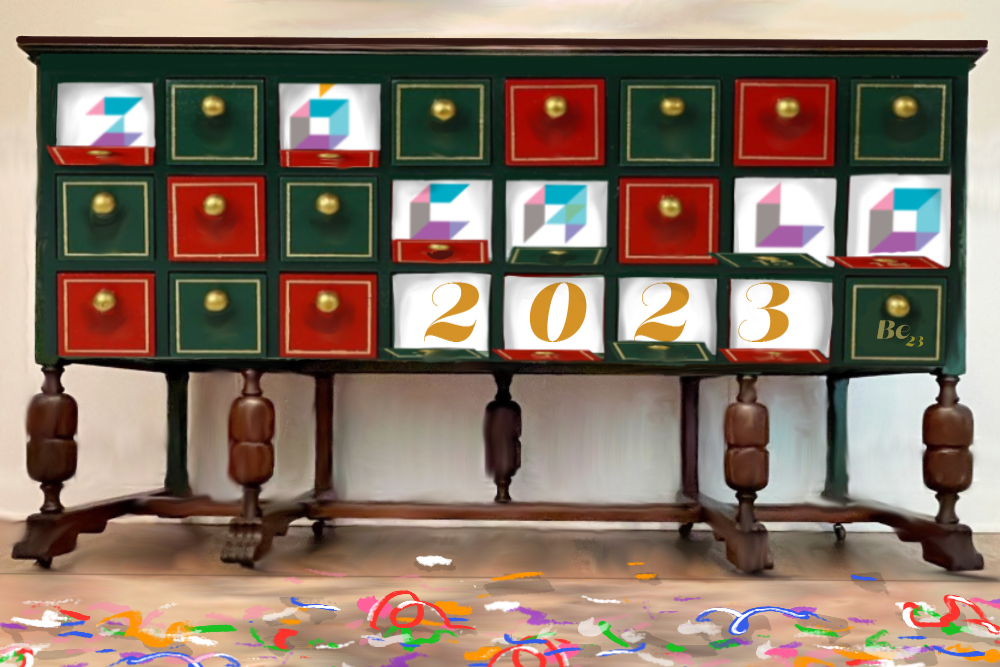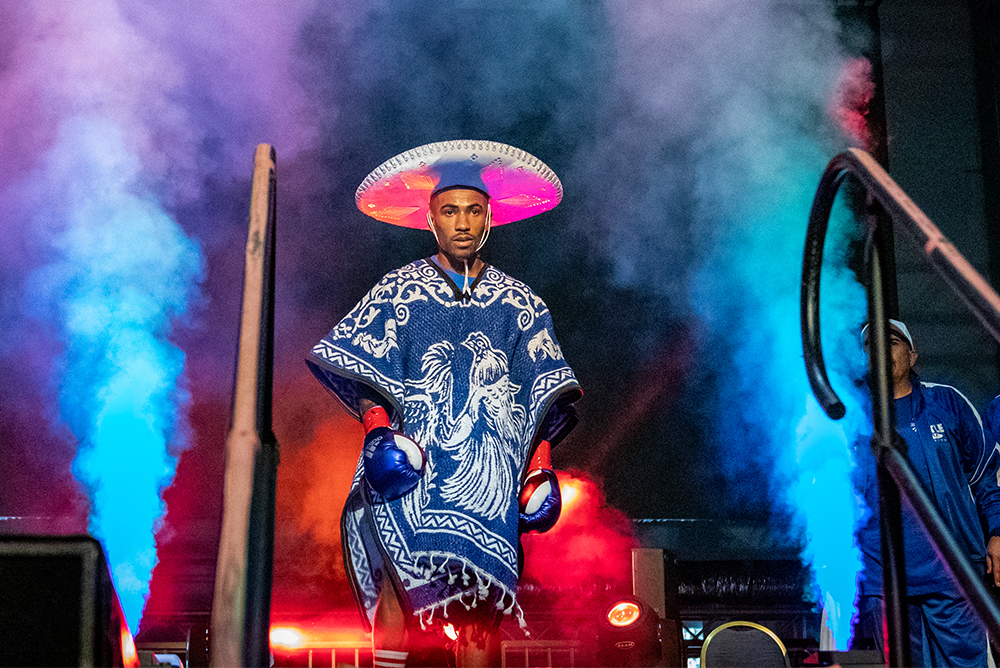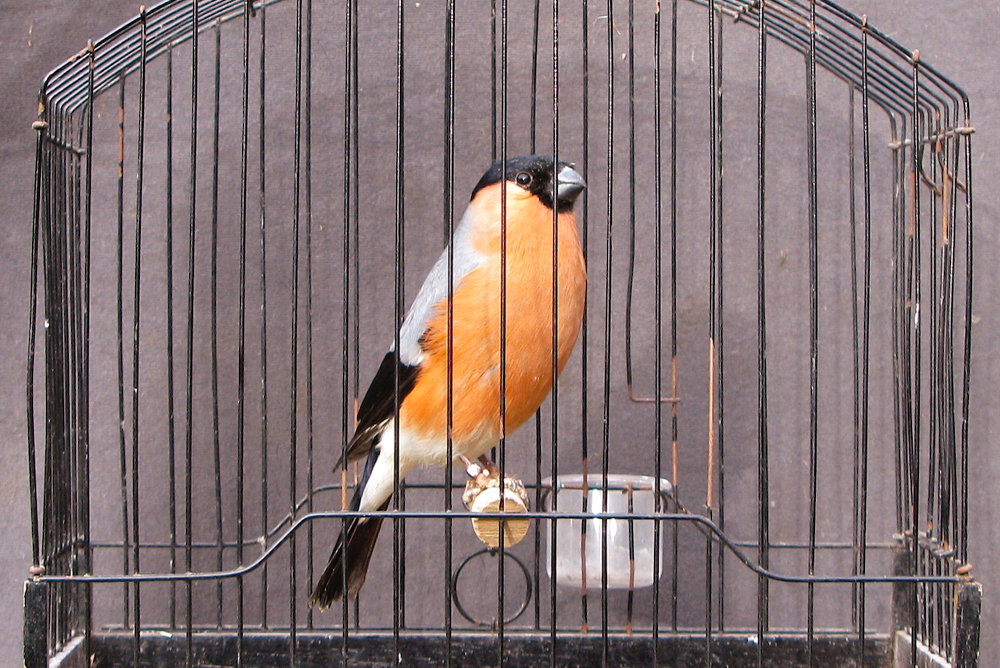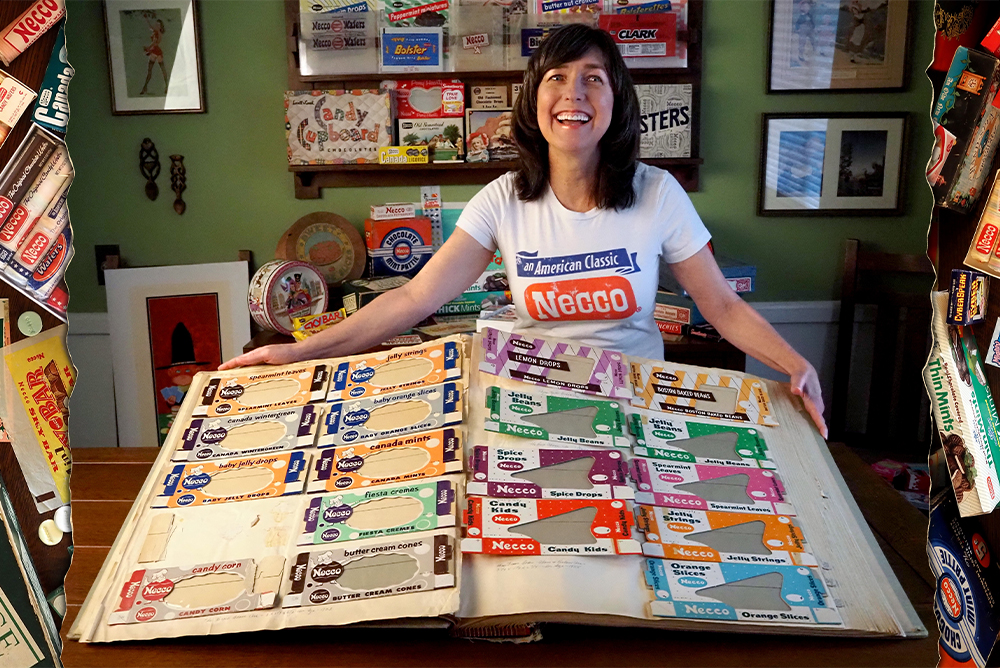
Illustration by Be Boggs.
South Africans got it right when they made “kuning,” the isiZulu word that roughly translates to “it’s a lot,” one of the defining words of 2023.
It was a lot this year.
2023 seemed an epoch of crises: the highest number of global conflicts in three decades, myriad climate disasters that claimed more than 12,000 lives, and the erosion of democracies worldwide.
Amid all of it, Zócalo was here—sifting through the pressing stories and providing context, perspective, and humanity.
Our favorite 15 essays of the year, selected by the Zócalo staff and you, our readers, remind us that even in overwhelming times, people forge ahead. They think deeply. They ask questions. They create. They build community. And they even have some fun.
May you enjoy revisiting these writings as much as we did, as we ready to ring in a new year.
Boxers Know the Power of an Entrance
By Rudy Mondragón
Can anyone make an entrance like a boxer? Before moderating the Zócalo panel “What Does Boxing Owe Its Champions?,” scholar Rudy Mondragón made the case that the boxing ring entrance is the most important ritual in sport. More than a mere act of bravado, he writes, a ring entrance communicates everything from pride to dignity to political protest—in just a few ephemeral, glittering, bombastic moments.

A boxer’s entrance is more than just flash. It’s how they make their mark in the sport and the world, scholar Rudy Mondragón writes. Above, William “El Gallo Negro” King wears a Mexican sarape with a rooster and a sombrero de charro, embracing his Afro-Mexican roots. Photo by Rudy Mondragón.
How Is a Poem Like a Political Campaign?
By Derek Mong
Most of us haven’t given much thought to how poetry and political campaigning might be alike. But Zócalo contributing editor Derek Mong, who won a National Arts and Entertainment Journalism award for this essay, has given it serious thought. Aside from the obvious—that “both benefit from a clipboard”—he unearths deeper threads tying the pursuits together.
My Work as an In-Home Caregiver Shouldn’t Be This Hard
By Alva Rodriguez
Alva Rodriguez is one of more than 550,000 caregivers in California’s In-Home Supportive Services (IHSS) program—workers who help an estimated 650,000 disabled, blind, or elderly Californians continue living in their own homes. Writing from Fresno for our The James Irvine Foundation-funded series “What Is a Good Job Now?,” Rodriguez describes the deep precarity of the job—“one of the toughest and worst-paying you will find”— and reflects on ways to improve this essential line of work.
What Mourning Looks Like in Monterey Park
By Wendy Cheng
On January 21, 2023, a gunman opened fire and killed 11 people at Star Ballroom Dance Studio in Monterey Park, resulting in the deadliest mass shooting in Los Angeles County history. Wendy Cheng writes about the outpouring of community support and solidarity in the wake of the attack, and the ways a public memorial for the victims reflected the city’s unique multiethnic and multiracial history as a home for “immigrants and lost ones.”
Whose Sedona Is It, Anyway?
By Tom Zoellner
During the pandemic, Sedona, Arizona, temporarily stopped advertising in high-end travel magazines. In the place of well-heeled visitors have come day travelers and overnighters from nearby cities that some residents say are destroying “Slo-dona”—and the town finds itself stuck in a fierce debate about whether it should “yank back the welcome mat to the middle class,” writes Tom Zoellner. Published in the fall, the piece generated enough chatter that just recently the city and the chamber of commerce put out a joint statement in response.
Intellectual Snobbery is for the Birds
By Tim Birkhead
Ornithologist Tim Birkhead shares how an encounter with a hobbyist birdkeeper who breeds bullfinches (who are, if you aren’t aware, “humbly endowed”) led him down a new line of research into the phenomenon known as sperm competition, and a better understanding of reproduction in birds. While the subject of Birkhead’s essay might make a middle schooler giggle, the story itself makes a powerful point: Researchers need to listen to people outside academia’s ivory tower.

Tim Birkhead, one of the world’s leading bird biologists, shares why being open to learning from people outside of academia’s ivory tower—in this case hobbyist birdkeepers—can lead to “unexpected and exciting results.” Photo by T.R. Birkhead.
Dianne Feinstein’s Most Important Job Was an Unofficial One
By Joe Mathews
Zócalo columnist and democracy editor Joe Mathews has made some big proclamations this year. That San Diego is California’s “finest college town.” That we should call it the California, not the Colorado, River. That the Santa Cruz otter absolutely should have bitten back. But one of his most memorable takes came in the wake of Dianne Feinstein’s death. Reflecting on her long tenure in U.S. political life, Mathews makes a case that her greatest role in office was as California’s “last ambassador to the American government.”
Reckoning With Racist ‘Lynch Law’ and Rape Charges, a Century Later
By Margaret Burnham
For two years, Zócalo has worked on a project supported by the Mellon Foundation that asks: “How Should Societies Remember Their Sins?” This essay by Margaret Burnham, director of the Civil Rights and Restorative Justice Project at Northeastern University, shows how such reckonings can lead to action and change through the story of John Henry James. In 1898, James, a Black man in Virginia, was accused of raping a white woman, murdered by a lynch mob, and posthumously indicted for assault. Burnham details how, 125 years later, a judge dismissed the indictment thanks to a campaign by historians, lawyers, and community members. The decision opens a “path forward for a crucial American reckoning with a thousand-plus state executions of Black males accused of assaulting white females,” Burnham writes.
The Struggle for a Latino Place in Chicago
By Mike Amezcua
Historian Mike Amezcua explores the parallel struggles of mid-20th century Black and Latino Chicagoans overcoming segregation and making space for their communities. “This history of Latino placemaking is far less known than the civil rights struggle led by King,” Amezcua writes. “But it remains an important context for later developments in Chicago’s urban and political history.” Readers were passionate about Amezcua’s piece, writing it in as a favorite in our audience survey.
My Mom is Out of Prison, But I’m Still Not Free
By Angel Gilbert
Most young people look forward to college as a time of independence, but when Columbia University student Angel Gilbert started school, she had already been on her own “for far too long.” In her Zócalo essay, Gilbert, one of millions of young people who have had an incarcerated parent, shares what it was like to grow up with a mother behind bars. “My emotional pain will never truly heal,” she writes. However, she adds that once she reaches her goal of becoming a lawyer, all of her experiences ensure that she will fight harder for her future marginalized clients.
Destined to Be Trans, Muslim, and Indonesian
By Amar Alfikar
Growing up in a traditional Muslim neighborhood in Java, Indonesia in the 1990s, Amar Alfikar, a trans man and activist, shares how he leaned into family and faith to understand—and embrace—his true identity. “If it was not for my family’s acceptance, I would have left my religion,” he writes. “Instead, I am pursuing an academic career in theology and religious studies and have become firm in my faith and thinking about gender diversity in Islam.”
Can Two Friends Agree to Disagree on Abortion in Post-Roe America?
By Joanne Samuel Goldblum and Colleen Shaddox
Joanne Samuel Goldblum and Colleen Shaddox found sisterhood raging about injustice—but they disagree about abortion. Read how they’ve worked to maintain their bond in post-Roe America. “Being truly pro-life or pro-choice requires us to knock down rhetorical barriers and focus on the areas where we wholeheartedly agree,” they write, “that every child has a right to be placed on a path to success and that no mother should have to sacrifice her own success to make that happen.”
Where I Go: The Candy Wrapper Museum
By Darlene Lacey
Darlene Lacey was 15 when she started collecting old candy wrappers. Eventually, she turned her hobby into an online museum. For our series “Where I Go,” she gives truth to the adage that one person’s trash is another person’s treasure, and shows the power of appointing ourselves as the curators of the things that matter to us the most.

Candy Wrapper Museum curator Darlene Lacey was 15 when she started collecting for her “roadside attraction.” Building the online museum has led to all kinds of surprises—including being sent a Necco scrapbook saved from a dumpster (pictured above). Courtesy of author.
Zócalo’s Diaspora Jukebox
As part of Zócalo Public Square’s 20th birthday celebration, we’ve been sharing the sounds of the Southland with “Diaspora Jukebox,” a series of playlists that celebrate the unique communities and musical traditions that represent greater Los Angeles. Our first “drop”—which had us moving to the rhythm of the city, dancing like it was 1982, and partying like a Zacatecano—culminated in an IRL dance party we threw at the Port of L.A.
The Human Costs of Building a World-Class City
By Ankush Pal and Anubhav Kashyap
And, drumroll please: Our first-ever audience choice award goes to authors Ankush Pal and Anubhav Kashyap! They take a clear-eyed look at New Delhi’s effort to “polish” the city ahead of this year’s G20 summit, at the expense of poor and working-class people. “Rather than improving life in the city for everyone,” they write, “the beautification projects funnel public resources into creating a cosmopolitan bubble for a few.”




Send A Letter To the Editors